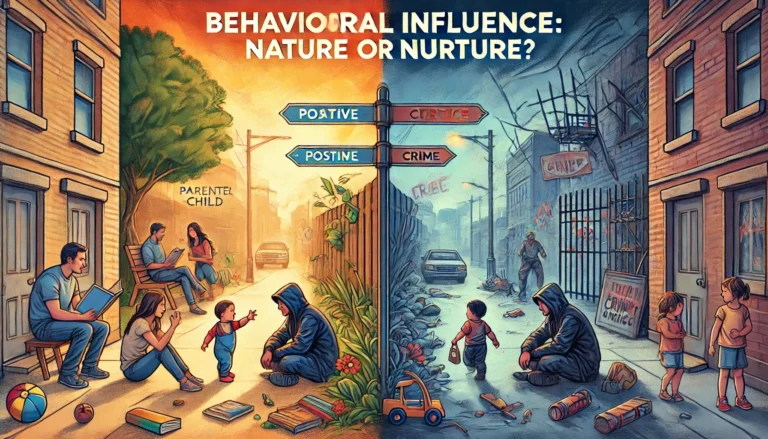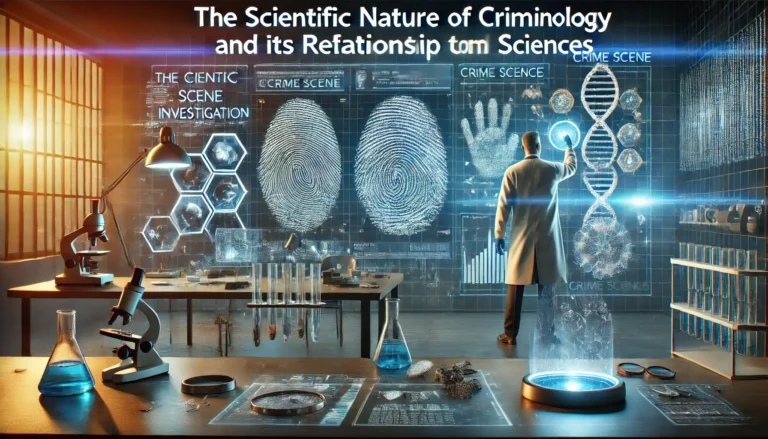The Future of Criminology: criminal justice?
Criminology, as a dynamic field, continuously evolves to address the complexities of crime and justice in a changing world. The future of criminology is poised to play a crucial role in advancing criminal justice by leveraging emerging technologies, fostering interdisciplinary collaboration, and adapting to new challenges in global and local contexts. This article explores how criminology is shaping the future of criminal justice systems, offering innovative solutions to persistent problems.
1. Emerging Trends in Criminology
Data-Driven Approaches
- Predictive Analytics: Using big data to forecast crime hotspots and patterns.
- AI Integration: Enhancing decision-making in law enforcement and legal systems.
Focus on Cybercrime
- Developing methodologies to combat online fraud, hacking, and digital piracy.
- Collaborating with international bodies to tackle transnational cybercrime.
Restorative Justice Models
- Prioritizing victim-offender mediation and community reintegration.
- Emphasizing rehabilitation over punitive measures.
2. The Role of Criminology in Criminal Justice Reform
Addressing Systemic Inequalities
- Identifying and mitigating biases in policing and sentencing.
- Advocating for equitable access to legal resources.
Improving Correctional Systems
- Designing evidence-based rehabilitation programs.
- Reducing recidivism through education and skill-building initiatives in prisons.
Enhancing Legal Frameworks
- Integrating insights from criminology into legislative processes.
- Crafting laws to address emerging issues like environmental crimes and AI-related offenses.
3. Challenges in Advancing Criminology and Justice
Ethical Dilemmas
- Balancing security needs with individual privacy rights.
- Ensuring fairness in the application of predictive technologies.
Global Disparities
- Addressing the gap between developed and developing nations in criminological research and applications.
- Sharing resources and expertise to build resilient justice systems worldwide.
Resistance to Change
- Overcoming institutional inertia in adopting new methodologies.
- Educating stakeholders about the benefits of modern criminological practices.

4. Opportunities for the Future
Technological Advancements
- Using blockchain for secure evidence management.
- Applying virtual reality for crime scene reconstruction and training.
Collaborative Research
- Encouraging partnerships between academic institutions, governments, and private entities.
- Promoting interdisciplinary studies to uncover deeper insights into criminal behavior.
Policy Impact
- Guiding governments in crafting comprehensive crime prevention strategies.
- Highlighting the importance of addressing root causes like poverty and inequality.
5. Criminology’s Global Impact
Combatting Transnational Crime
- Strengthening international collaboration against terrorism, human trafficking, and drug cartels.
- Developing universal protocols for evidence sharing and extradition.
Promoting Sustainable Development
- Advocating for environmental justice through criminology.
- Tackling crimes against ecosystems and biodiversity.
6. Envisioning a Future Criminal Justice System
Integrated Technologies
- Fully automated court systems for efficient case management.
- AI-driven tools for unbiased legal decisions.
Community-Oriented Justice
- Expanding restorative justice programs to all levels of offenses.
- Empowering communities to participate in safety and crime prevention initiatives.
Holistic Approaches
- Addressing crime as a societal issue rather than an individual failing.
- Integrating social services, education, and mental health support into justice frameworks.
Conclusion
The future of criminology is intricately tied to the evolution of criminal justice systems worldwide. By embracing innovation, addressing ethical concerns, and fostering global collaboration, criminology can lead the way in creating fairer, more effective, and inclusive justice systems. As the field continues to grow, its contributions will be instrumental in building safer societies and ensuring justice for all.







